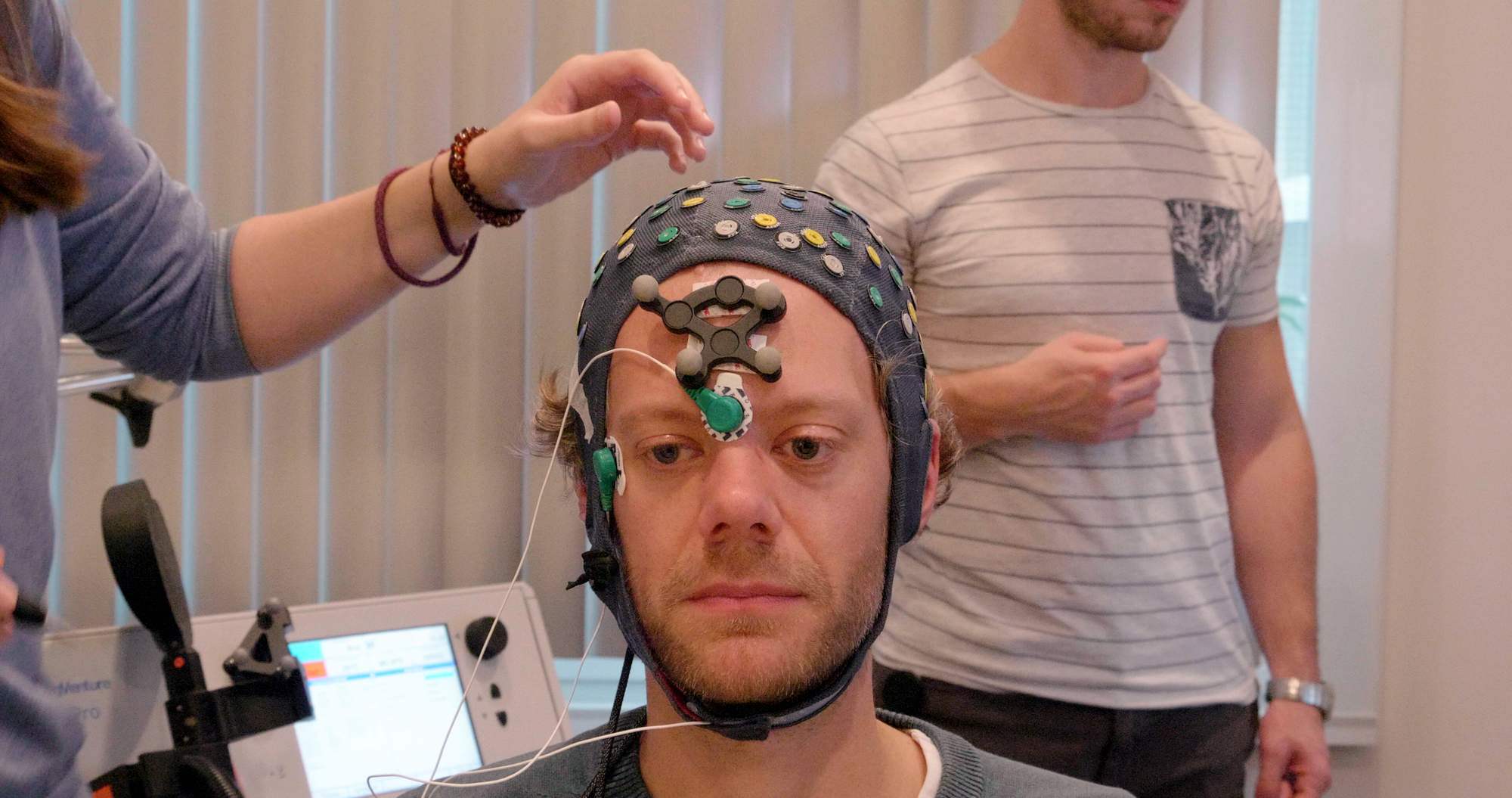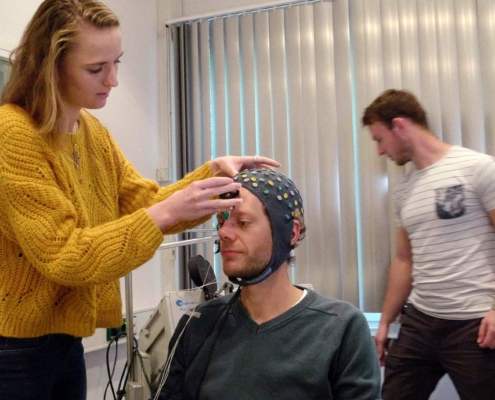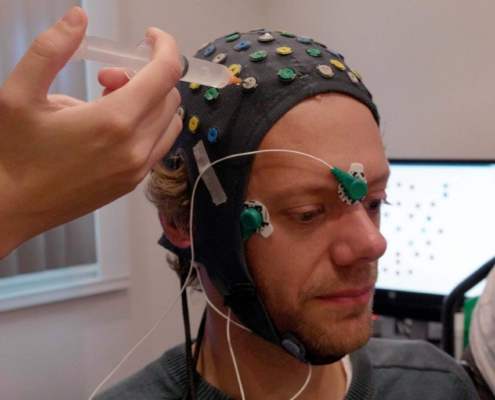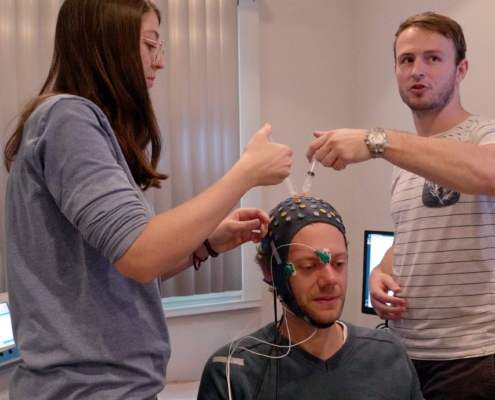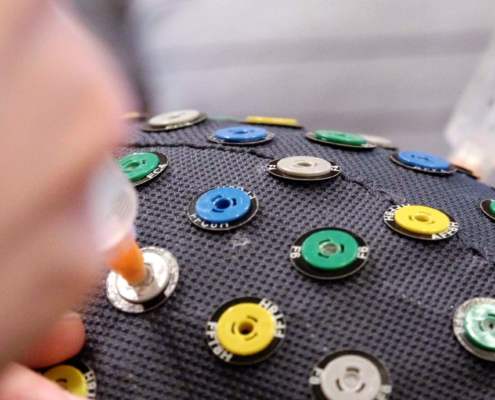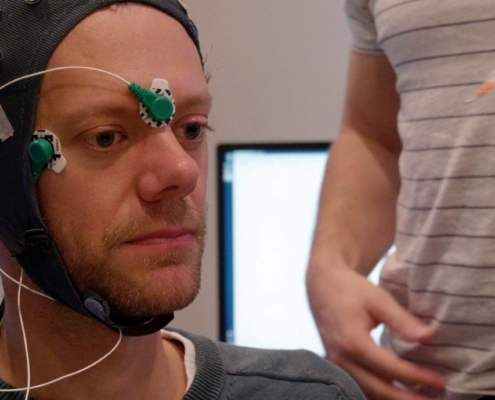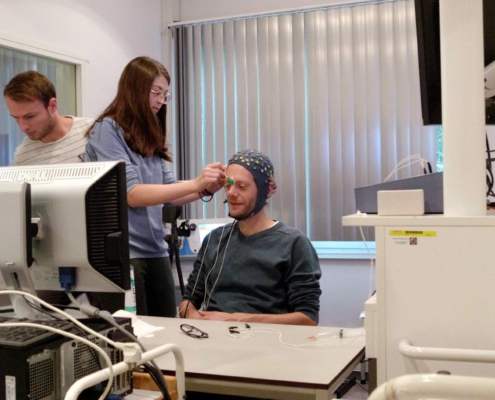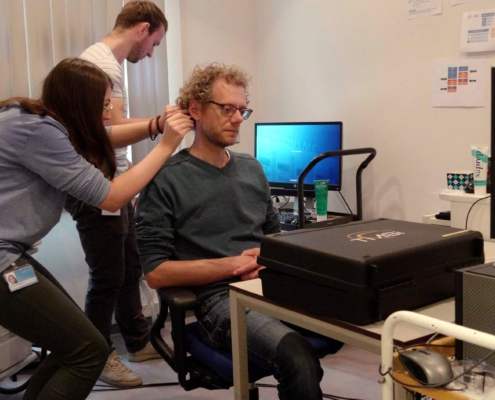Precision Therapy for stroke Patients
TDCS (Transcranial Direct Current Stimulation) is a form of electrostimulation of the brain. It is commonly seen as a promising technique to improve recovery after a stroke and it has been suggested that TDCS would be especially effective in specific subgroups.
For example, people with certain genetic variants. However, most studies had few subjects and no adequate control group. We conducted a number of large double-blind randomised controlled trials to investigate whether TDCS indeed works and whether we can predict for whom TDCS is most suitable. This study used more than four times as many subjects as previously published research.
In combination with the latest statistical methods, we have convincingly shown that, unfortunately, TDCS does not work. Nor is there a subgroup for whom it does work. Using modelling studies, we have found a possible explanation for the negative results: Current forms of TDCS do not consider differences between patients in brain anatomy and function. In addition, we have investigated how TMS (Transcranial Magnetic Stimulation) and EEG (Electroencephalography) can be used to map individual differences in recovery and learning. For TMS, we have shown that a new measurement of muscle representations in the brain is just as reliable as an old technique. The old slower technique takes 25 minutes. The new technique takes only 5 minutes. This makes following the recovery of a muscle representation during a stay in a rehabilitation center much less unpleasant for the patient. Using EEG, we have determined which brain activity is related to faster learning of a motor learning task. We have also shown a large individual differences in how feedback on the error in a movement is processed in the brain. In the future, this error-monitoring system could be a starting point for making training after a stroke even more efficient.
From Jonker ZD, van der Vliet R, Hauwert CM, Gaiser C, Tulen JHM, van der Geest JN, Donchin O, Ribbers GM, Frens MA, Selles RW. TMS motor mapping: Comparing the absolute reliability of digital reconstruction methods to the golden standard. Brain Stimul. 2019 Mar-Apr;12(2):309-313. doi: 10.1016/j.brs.2018.11.005. Epub 2018 Nov 10. PMID: 30497885.
Effect of stimulation on the excitability of the motor cortex after tDCS stimulation in sham stimulation in a large group of healthy participants (from Jonker ZD, Gaiser C, Tulen JHM, Ribbers GM, Frens MA, Selles RW. No effect of anodal tDCS on motor cortical excitability and no evidence for responders in a large double-blind placebo-controlled trial. Brain Stimul. 2021 Jan-Feb;14(1):100-109. doi: 10.1016/j.brs.2020.11.005. Epub 2020 Nov 14. PMID: 33197654).
Scientific Lead
Period
1- 2016 / 1- 2020
Research lines
Innovative Rehabilitation Technology
Personalised treatment of upper extremity disorders
Clinical focus area
acquired brain injury
Hand Rehabilitation
 Photo made by Marieke de Lorijn
Photo made by Marieke de Lorijn Preserving health and vitality in CP adults
Preserving health and vitality in CP adults